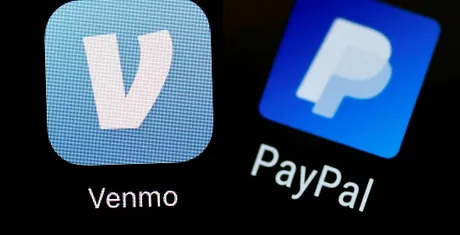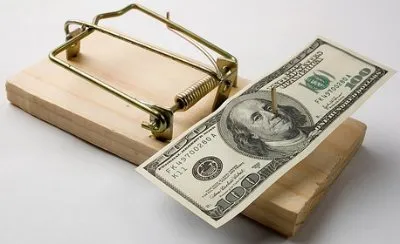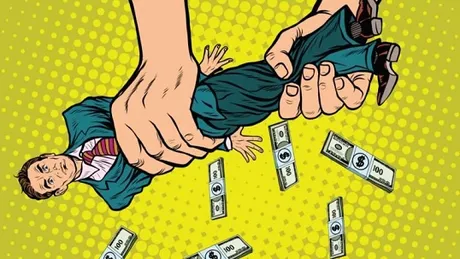
After talking about how it would be possible to implement a peer to peer fiat offramp yesterday there is still much more left to be said. Centralized payment platforms have various ways in which users can dispute charges and initiate chargeback refunds.
This is the first article I came across:
https://www.wcvb.com/article/ben-has-your-back-venmo-credit-card-dispute-massachusetts-victim/38977771
Interesting scam.
Essentially Venmo's advice for payments sent to the wrong place is for users to simply send it back. Obviously after watching this it should be obvious to everyone that you should never send money anywhere unless you're buying something or paying someone on purpose. This is what someone like me would do by default, but once again we see that users are too trusting and no good deed goes unpunished.
Now that I think about it this actually did happen to me on Paypal. Years ago I was sent quite a bit of money and I had no idea why or who had sent it to me. Weeks later the money was gone from my account without me having to worry about it. As a user, the answer in these cases is simple: do nothing and everything will be fine.
Meanwhile... on Venmo...
A scammer can't steal funds directly, but if they send the money to someone else and get that user to send it back, the Venmo system unlocks the money and allows the scammer to steal it. That's because the money that got sent was never on Venmo to begin with, but in a legitimately regulated bank account or credit card.
Venmo extends an invisible line of credit to their users so when you make a payment from your bank account, even though the bank won't actually send it to Venmo for a couple days, Venmo will allow that money to flow freely through their system. Oops. Is it super convenient and a great UX? Yes. Is it a blatant and obvious attack vector? Also yes. Venmo has done the math and it's still worth it for them to do it this way. However, part of that math is fucking over their own users when it suits them on the outlier edge-cases.

The customer service rep also told her to send back the $900, which she did.
A few weeks later, Venmo froze her account, emptied the money in it — about $375 — and said she owed them another $525. That's a total of $900.
Classic case of a corporation being so far up their own ass that when their own system gets hacked they try to make their users pay for it.
After NewsCenter 5 reached out to Venmo, the company looked into Sargent-Grasso's case. They unfroze her account, apologized, and refunded her the $900. Venmo told us this was a one-off error and in a statement said they are continually reviewing their processes to ensure they're protecting their customers.
LOL
And what happens to users when there isn't a news agency on their side with a PR nightmare breathing down their neck?
Venmo told us this was a one-off error
That is laughable.
A "one-off" error? No, someone figured out how to hack Venmo's standards and practices and probably stole quite a bit of money, and Venmo is obviously lying and acting like it's nothing. It's such an obvious lie just from the language. That was not an 'error', someone clearly stole money on purpose and Venmo got caught and then they lied their asses off when a news agency picked it up. Classic capitalism.

But that's not even the info I was looking for!
That was just a somewhat interesting article I found when looking for the rules on chargebacks. Even Venmo's website itself is unclear.
https://help.venmo.com/hc/en-us/articles/1500004799781-Chargebacks-on-Venmo-Payments-
If a Venmo user files a chargeback on a payment sent to you, we’ll let you know. If you don’t agree that the chargeback is valid, you can help us dispute it by providing information about the transaction within 10 days of receiving this notification. It typically takes 30 days for us to dispute the chargeback, and it may take the Sender’s card company up to 75 days to resolve a chargeback and come to a final decision.
So close but no cigar!
This statement has all the information I need except for the most important information of all: How long does the customer have before they are no longer allowed to initiate the chargeback in the first place? That's the most important tidbit of information that they so conveniently leave out for whatever reason.
See what's going on here?
Venmo is their own Escrow service! These chargebacks and dispute claims are exactly what an escrow service does. They are making sure the money is going to the right place. The reason why it's important to know how much time the customer has to dispute is because if we were trying to create a p2p offramp for HBD/USD on Venmo this would be extremely relevant information.
If I send USD to someone on Venmo, that person probably wants to know how much time is available to steal the money back. They probably don't want to send me HBD as soon as I send them USD on Venmo, because HBD transactions are totally irreversible instantly (unless you magically get multiple witnesses to rollback that block before it becomes permanent in 60 seconds).
If they did send me the HBD, I could simply dispute the payment on Venmo and likely get my money back. In fact if the receiver of the USD was truthful in the dispute process and claimed they sold their cryptocurrency to me in exchange for the USD that was being reclaimed, what do you think Venmo would do? Who will they side with?
Almost certainly me (the scammer) because buying and selling cryptocurrency over the counter is obviously against the terms of service, and thus the transaction was not only invalid, but also confirmed to be invalid by the receiver themselves. Again, no good deed goes unpunished. People who tell the truth seem to often get railed within all manner of dispute systems (even the court system itself).

So what's the solution?
I assume that the amount of time someone has to dispute a charge on Venmo is certainly somewhere between 30-60 days. Less than 30 days would be too little because users need to be able to see the charge on their bank statement, and more than 60 days would be way too long for someone to take their money back after the deal was done. This creates a big problem in terms of peer to peer trading, because no one is going to want their money to be locked up on ice for 30-60 days when the HBD being sent is permanently transferred after 60 seconds.
The solution to this problem is that the user who sends USD on Venmo is a trustworthy party and it can reasonably be assumed that they will not initiate a chargeback. Unfortunately this makes the system much more centralized because only trustworthy parties would be the ones buying HBD from other users and sending them USD on Venmo.
The second solution is to simply lock the HBD in escrow until the Venmo user that sent USD can no longer initiate a chargeback by design. Depending on Venmo's terms of service I assume this to be a 30-60 day period, which could be pretty problematic. But perhaps there is some way to waive these rights or get around the problem entirely that I haven't considered yet.
https://www.npr.org/transcripts/736352315
Interesting podcast from 2019... who knows if Venmo still operates in this manner, but it seems like doing a chargeback is actually much more difficult than on something like a credit card.
In this story someone goes to pay their rent on Venmo but sends it to @stephen1 instead of @steven1. They try to get the user to send back the money, but they won't until Venmo tells them to, and they try to get Venmo to charge back the amount but they won't either. Seems like Venmo has some pretty arbitrary rules for these things.
HOROWITZ-GHAZI: There's this weird thing going on, like, inside the Venmo universe. When you Venmo money to a friend or whoever, it appears in your friend's Venmo account instantly. But Venmo doesn't actually take money out of your bank account instantly. That actually takes some time.
FEDER: It wasn't really like I just handed an envelope of cash to a stranger - you know? - even though that's how it felt. So that night I call my bank and I tell them - look; Venmo is about to take $1,500 out of my account. I do not want to give them that $1,500. Could you block that? I've never tried this before. I've never put a stop on a bank payment. But it's really easy. They don't ask too many questions. They're just like, yeah. OK. We'll do that - costs you $30. And I'm like great. Do that, please. Thank you.
Then three days later, I get an email from Venmo saying I owe them $1,500, and they're going to freeze my account until I'm settled up. But then an hour after that, I get a second email saying actually it's all good. I don't owe them any money; account is unfrozen. And just like that, three days after it started, it was all over.
So in this case the chargeback was forced by cutting Venmo off at the pass and blocking the transaction from going to Venmo in the first place. What would have happened if Venmo got the money? I do not know. Again, their system is opaque and they can change the rules whenever they want. That's a problem.
https://donotpay.com/learn/venmo-chargeback/
Can You Do a Chargeback on Venmo?
You cannot do a chargeback on Venmo directly. If you used a debit or credit card to pay for a transaction with an authorized merchant through your Venmo account, but you want to dispute it, you will need to file the chargeback claim with your card issuer.
Hm, interesting.
So because Venmo doesn't charge people to transfer money around, they don't actually allow you to reverse transactions on the app directly because they don't have a way to pay the salaries of people that would do this kind of escrow service. Rather Venmo will not take action until they don't get their money from the bank or credit card company, in which case they will freeze your account and demand the money back before they unlock it. Interesting business model.
The implications:
This means that if you carry a USD balance directly on Venmo itself (not paying from the banks or CC) then when you transfer money it becomes permanent and irreversible. That actually could be a huge advantage in creating a p2p fiat offramp (assuming it was possible to connect to Venmo API and see if someone paid with USD directly on the app). If it could be determined that the Venmo transfer was permanent non-reversible, the escrowed HBD on Hive could unlock immediately afterwards, and everyone gets what they wanted in the shortest possible time. Something to think about.
Unfortunately the drawback to holding USD directly on Venmo is that Venmo unilaterally controls the money. Considering their terms of service (TOS) specifically states they can freeze and steal your money for whatever reason they feel like... this is an obvious risk we need to be aware of, especially when doing something as shady as sneakily trading cryptocurrency on the platform without them knowing about it.
P2P fiat offramp recap:
- User on Hive sends HBD in escrow contract to someone looking to buy it with USD on Venmo.
- User on Venmo sends the USD on Venmo to the account portrayed in the memo on the HBD escrow transaction.
- API/escrow somehow proves that the USD on Venmo will not be disputed (either because it is impossible to dispute or because the HBD buyer on Hive has a high reputation and a history of doing these transactions).
- API/escrow then unlocks the HBD to the buyer after USD on Venmo is confirmed.
That's really all it takes.
The big points of vulnerability are the trustworthiness of the escrow account on Hive (collusion with the HBD buyer) and more importantly the chargeback mechanics of the centralized USD payment processor. Once these things were figured out we'd have our very own stealth fiat offramp that would be extremely difficult if not impossible to regulate.
What is the value proposition?
This is a very counterintuitive thing. Why would do go through all the trouble of making something like this happen? Basically so users could dump their HBD and get cash on a regulated payment processor. So we are going to do work... so that more people can dump HBD? Yep, that's exactly what we would do.

I'll go into this more in my next post when I explain why allowing users to short the market is actually an extremely powerful long-term solution to building value and creating growth (as ridiculous as that sounds, it's true).
First of all, this p2p system doesn't really benefit users that want to buy HBD with USD, unless they get a discount. Spending USD is not a tax event and the regulations for turning USD into crypto are far less absurd than the ones employed in the opposite direction. Obviously there would be a lot more demand to sell HBD and get USD on Venmo than the other way around. In essence this p2p system would be largely unidirectional, creating a situation where there's a premium to dump HBD into USD on Venmo and then the receivers of the HBD would often find a way to dump it back into USD on Venmo to do it all over again. It would actually be a very good thing is users were willing to trade HDB:USD 1:1, but I doubt that would be the case when it comes to the free-market dynamics (with USD being slightly more valuable).

There are a few reasons for this:
- More demand to get USD on Venmo than the receive HBD on Hive.
- The USD on Venmo is basically an air-gapped money-laundered trade that has no origin. It's basically private money and the only way it could be traced to HBD is if the buyer of the HBD spilled the beans to law enforcement or regulators or the IRS or whatever.
- Because this is a decentralized solution and there could be thousands of people doing these trades, this makes the money exponentially more private and untraceable, which gives the USD a higher value than the HBD.
- USD has more utility than HBD.
What's a fair premium to charge?
Before I floated the range between 1%-5% fee for this kind of thing, with the person dumping HBD into USD on the payment app paying some kind of premium within that range. Thus, 1 HBD would get someone between 95-99 cents. 1% is likely too low to make it worth it, and 5% is very high. The 3% average is probably a nice compromise between the two. I know I would pay a 3% fee to get USD on Venmo just for the novelty of it all. That would be pretty cool.
It's also interesting because the HBD being "dumped" isn't really being dumped until the person receiving it actually dumped it onto the market. An under-the-table deal like this isn't necessarily going to create dumping unless the same users are cycling USD back into Venmo to continue the arbitrage cycle and turn that 3% profit in higher and higher volumes. Again, there's also a chance that people would use this service to legitimately buy HBD and perhaps even stake it in the savings account for 20% yield after getting a 3% discount on the sale upfront. This would be the opposite of what we have now where acquiring HBD can be tricky in higher volumes as the price will get pushed up.
Conclusion
Perhaps it's all a ridiculous pipe dream, but I see real demand for this kind of thing on both sides of the trade. I honestly don't think centralized regulated payment processors would be able to shut something like this down. Regulation comes from the top-down, and when crypto creates solutions from the bottom-up the legacy systems that they connect to will have no idea how to deal with it. Their entire mindsets are rooted in scarcity and centralization. They aren't going to be able to handle the future of money and governance. I believe Hive will be on the cutting edge front lines when that happens.
In the case of a USD/HBD bridge, it all comes down to the chargeback ruleset and the privacy policy involved. Ironically, an aggressively bad chargeback policy combined with an equally aggressively bad privacy policy is the best combination possible. That's because escrow contracts on Hive are good enough to handle the situation, and the chargeback policy just gets in the way. If the privacy policy is poor and anyone can connect to the API to see who sent money where, this would make the solution trivially easy and secure. Funny thought.
Posted Using LeoFinance Beta
Return from Chargeback Disputes on Venmo to edicted's Web3 Blog
